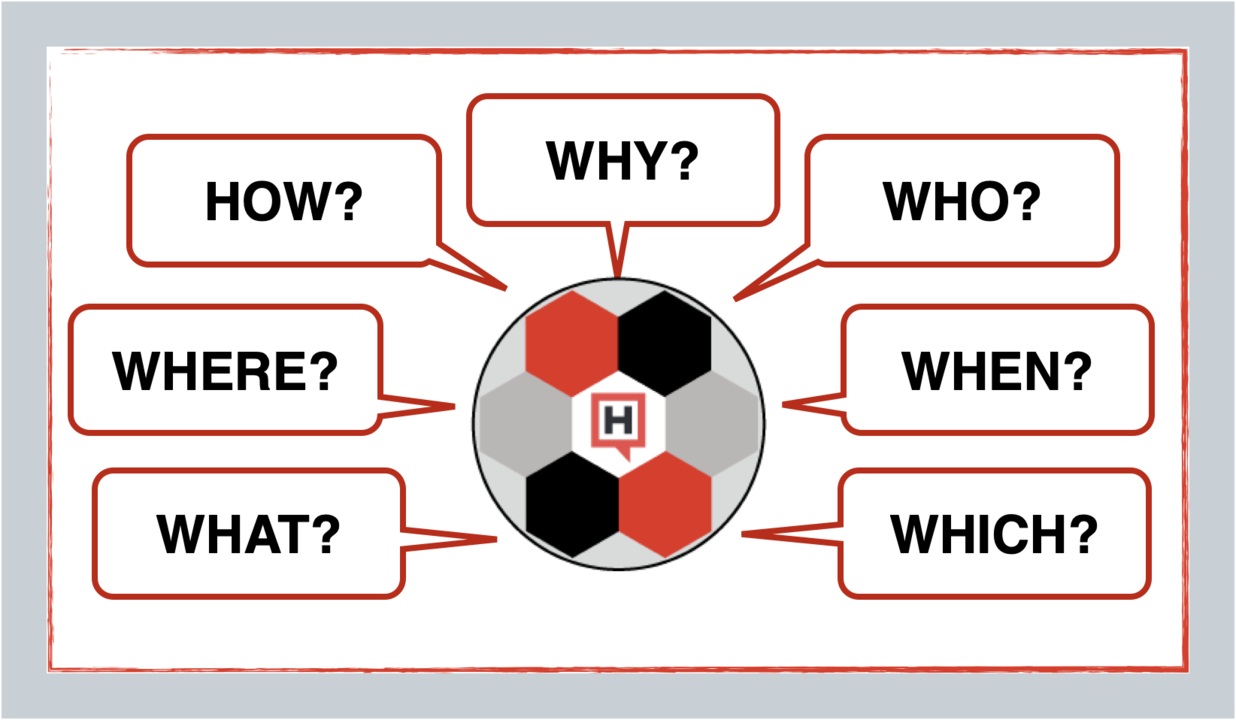
How to Answer Your Toughest Leadership Questions
As leaders, we are responsible for answering questions from our team, stakeholders and supporters. Effective leaders recognize that there are two types of questions. The first type is what I call "questions in disguise". The second type is the "real question."
A common example of a "question in disguise" is the popular (and ineffective) networking question "What do you do?" Many of us are nervous in first conversations, so we end up asking the same question everyone else is asking.
The "real question" is "Who are you?" We all want a meaningful exchange, where we discover something unique about one another, beyond the mundane job title, profession, or company name. This question is powerful because it allows us to share what is truly important: our vision, values and vows.
A Portfolio of Leadership Conversations
Effective leaders know how to map every question they receive into a "real question". This simple and challenging task requires each of us, as leaders, to develop and use the most important communication skill: the skill of listening.
Listening is your best tool to uncover the real question. Answering the real question is your best way to communicate trust, create connection and build relationships."
- Who are you?
- When have you succeeded?
- Which do you recommend?
- What is possible?
- Where are we going?
- How will we get there?
- Why is this important?
Let's examine a very common leadership conversation, the Company Town Hall Meeting. During times of crisis, these meetings are typically filled with fear, uncertainty and doubt. The room will also be filled with "questions in disguise": "Will I still have a job?" "Will this company survive?" "Does anyone in the room know what is going on?"
Leaders who develop the skill of conversational leadership know that the first step is to listen. Listen for the real question and focus your efforts to answer that question. In our example, the "real question" is "Where are we going?"
When you answer the "real question", you will also answer all of the "questions in disguise". In our example, leaders who identify and answer "Where are we going?" are more successful in reducing uncertainty and restoring confidence.
Building Your Message Portfolio
As an executive communications coach, I've prepared global impact leaders for their most important speaking opportunities: conference keynotes, analyst presentations, media interviews, TED talks, investor conversations, board meetings, and company town hall meetings.
Success is when preparation meets opportunity
Preparation for all of these high stakes situations always start with composing a precise and concise answer to each the 7 leadership questions. These compositions are designed to be presented to audiences in under 3 minutes. These compositions are what we call "The Message Portfolio"
In our Heroic Voice MasterClass, we guide leaders to compose a personal message portfolio. The goal is to be fully prepared for every leadership situation, from scheduled presentations to impromptu conversations.
Let's take a look at each of the portfolio compositions:
- Introduction is an answer to "Who are you?" These include personal introductions and company introductions.
- Narration is an answer to "When have you succeeded?" These include personal stories of overcoming adversity and company case studies.
- Solution is an answer to "Which do you recommend?" Popular applications are sales presentations and recruiting conversations.
- Ideation is an answer to "What is Possible?" This composition is used during company brainstorming meetings or conference breakout sessions.
- Direction is an answer to "Where are we going?" You can use this composition for Company Town Hall Meetings and Analyst Presentations.
- Education is an answer to "How will we get there?" You will find this composition in training presentations, and conversations with potential investors and partners.
- Heroic Keynote is an answer to "Why is this important?" This composition is used for Keynote Presentations and TED talks.
Expand the Capacity of your Heroic Voice
To accelerate your mission and magnify your impact, consider joining our Presentation ROI MasterClass. The program prepares you for your most important presentations and conversations. Compose 7 leadership presentations, elevate 6 essential message delivery skills, record your signature presentation.
Schedule an appointment with one of our executive communications coaches, and learn how the MasterClass will prepare you to generate money, support and reputation from all of your leadership presentations.



great information Anthony